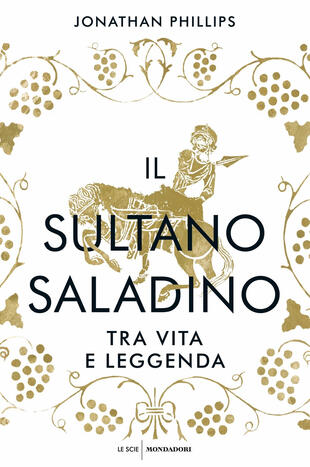

Sinossi
La fama di Saladino in Occidente affonda le sue radici nel 1187, quando «il re vincitore» riconquistò Gerusalemme sconfiggendo i cristiani, che la detenevano da quasi novant'anni. Nonostante li avesse sconfitti, il sultano si guadagnò il rispetto e l'ammirazione dei «franchi» perché non si era lasciato andare al massacro efferato dei nemici, in stridente contrasto con le violenze brutali e ingiustificate perpetrate dagli eserciti della Prima crociata. Jonathan Phillips, esperto di storia delle crociate, parte da qui per riscoprire le origini lontane dell'eccezionale popolarità di cui godette Saladino, indagando una vasta quantità di fonti arabe ed europee. In due decenni, il fondatore della dinastia degli Ayyubidi unificò Egitto e Siria, dando vita a un impero compatto e leale che abbracciava tutto il Vicino Oriente. Affrontò la rabbia prorompente dei soldati della Terza crociata, tra le cui file spiccava Riccardo Cuor di Leone, e fu ricordato, nelle cronache coeve e nei resoconti successivi, come un uomo generoso, onesto, devoto e colto. Il suo animo quasi cavalleresco lo rese un condottiero stimato al punto da meritarsi un posto tra gli spiriti di grande valore della "Divina Commedia", impossibilitati a salvarsi soltanto perché non cristiani. Tolleranza, sobrietà e generosità furono le virtù che rinvigorirono il suo prestigio nel XIX secolo, quando la fascinazione europea verso il medioevo fu condivisa da storia, letteratura e teatro. La sapienza militare e politica, che non risparmiò di contrastare gli eretici e gli infedeli con un obiettivo unificatore, fu invece alla base della celebrità del sultano, assurto a simbolo della resistenza e della vittoria sull'Occidente invasore, nella cultura di massa del mondo islamico. Saladino ebbe un ascendente ancora maggiore quando il nazionalismo arabo cominciò la sua ascesa e Nasser, Saddam Hussein, bin Laden cercarono di sfruttarne l'eredità richiamandosi a lui nei modi più disparati. A seconda dei casi, dunque, Saladino fu ricordato come un sovrano mite ed erudito, oppure spregiudicato e senza scrupoli. "Il sultano Saladino" ci consegna un resoconto, spogliato di qualsiasi pregiudizio, di un uomo che dopo otto secoli può ancora contare su un'eredità vibrante che mescola storia e leggenda, e ci aiuta a capire quanto possa essere ambiguo, nella contemporaneità, il travisamento della realtà storica.
- ISBN: 8804718498
- Casa Editrice: Mondadori
- Pagine: 544
- Data di uscita: 06-10-2020
Recensioni
The History of Crusades is incomplete without the mention of Saladin. It was Saladin who famously defeated the crusaders in the battle of Hattin and took back Jerusalem in 1187 (which the crusaders could never win back again) and he also played a key role in the 3rd crusade. The Life and Legend of
ENTERTAINING AND ENLIGHTENING 🌟🌟 The Crusades are not something new for me to read about or work with - however, I am used to the European, Christian point of view. This was a very interesting and well written fresh take (for me at least) at the crusades and the counter-crusades. "In the case
To be perfectly blunt, I could not have cared less whether the chapters on how Saladin's image has been used now were included or not. It is pretty obvious that it is used for the sole purpose of furthering the political agenda of the day of whatever political group has hijacked it. In short, his im Leggi tutto
A civilization in growth peers into the future to create institutions and framework suitable for that era, based on their present experience. Civilizations in decline, on the other hand, looks back to and derive inspiration from past glory in an effort to evade from the uncomfortable reality of the
A well-researched biography that humanizes Salah al-Din, revealing both his strengths and flaws. The same depth is given to the Ayyubid and Mamluk eras. I especially appreciated the use of period accounts, which brought everyday life and thought into focus, free from modern bias.
I've read a few of these 'the wo/man and her/his legacy' type biographies, and none of them work all that well: if the biography is good, the 'here's how people have imagined her' is usually quite weak, and vice versa. Phillips' biography is good, and the image stuff is fine, at best. There's a lot
A Thorough critical history of life and times of the most venerated sultan after the rightly guided caliphs who stands shoulder to shoulder with Mehmet the Conqueror. Not only the author makes great effort in critically analysing medieval near east and how Saladin ruled over much of it but also oult Leggi tutto
3.5/5
Citazioni
Al momento non ci sono citazioni, inserisci tu la prima!























